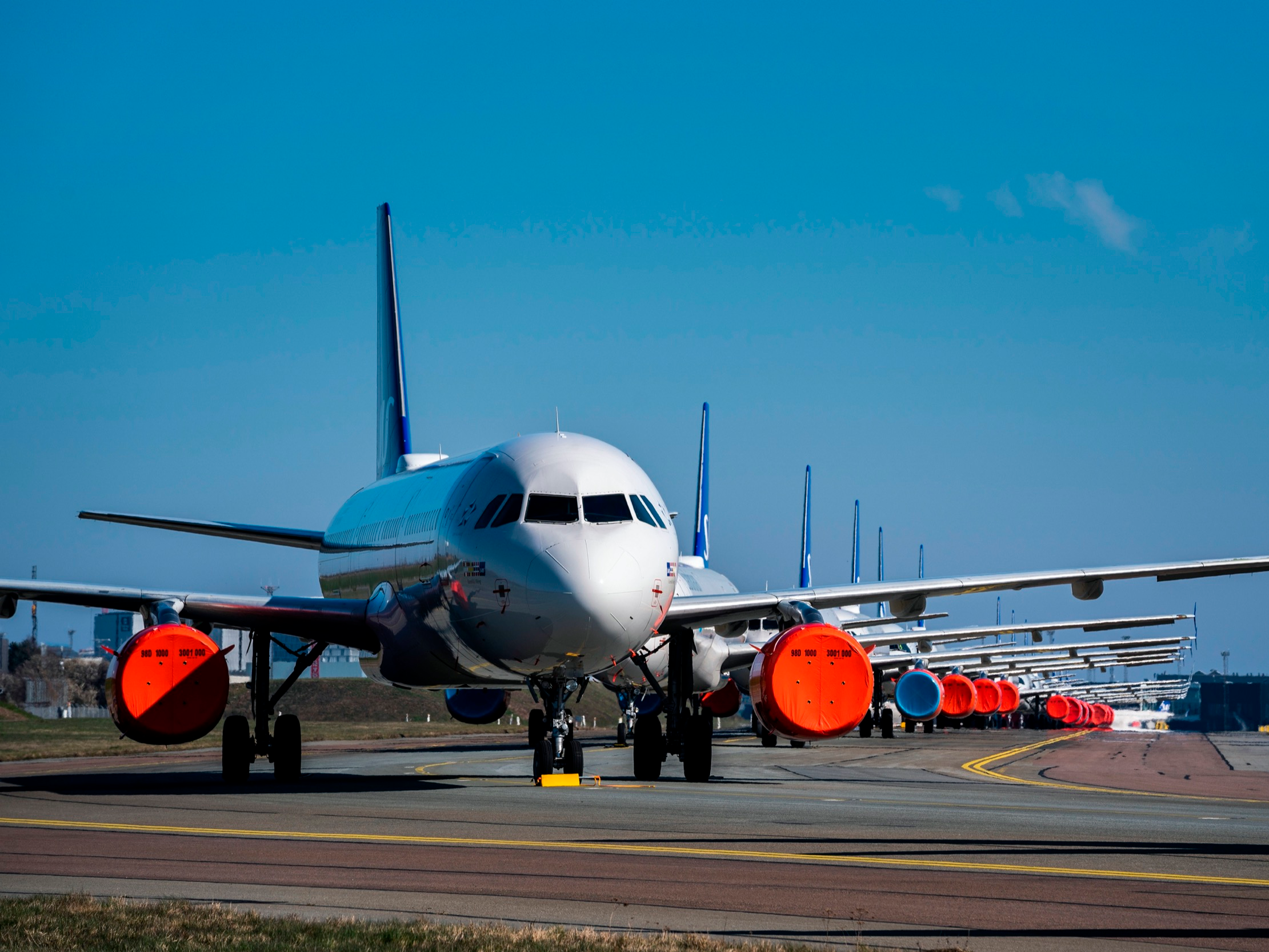- I was supposed to fly to Europe the night after President Donald Trump announced travel restrictions due to the coronavirus pandemic.
- After the announcement was made, I began the long process of tearing down the trip and getting my money back, which was harder than expected and is still on-going two months later.
- The pandemic revealed which airlines were financially responsible and which were less than enthusiastic to assist customers in the wake of a global health crisis.
- Visit Business Insider’s homepage for more stories.
In the weeks leading up to a planned trip to Spain and Morocco in March, I was constantly checking with my airlines to see if any of the 7 flights that I had booked would be canceled due to the spread of COVID-19.
With the virus marching across Europe and numerous countries including Italy and Spain helpless to stop its progression, I was all but sure that the airline would be canceling my flights. If that were the case, I’d be entitled to a refund and could be made somewhat whole.
Nevertheless, my flights were still scheduled to operate as planned up until around 9:00 p.m. on March 11, the night before my trip when President Donald Trump began his speech from the Oval Office. In his speech, the president announced all travel between the US and Europe except for the UK and Ireland would be canceled for 30 days starting that Friday.
Having suffered through the previous few weeks of hearing about airlines canceling flights, travelers canceling bookings, and countries closing borders, Trump’s decision was honestly a sigh of relief but work needed to be done as I would need to cancel other aspects of my trip.
A panic set in and I was off to the races making phone calls to tear down a trip I had spent nine months building up. Two months later, I'm still fighting to be made whole.
Here's what it was like to cancel travel plans after coronavirus threw a wrench in my trip.
Canceling my flights to and from Europe on Lufthansa - $548.44

It appeared that the president's travel ban had caught airlines by surprise.
Before the president could even finish his sentence announcing the historic travel ban, I was dialing customer service for the airline I had booked with, Lufthansa. The average hold time was stated as one hour with no other means of contacting them as the live chat function was down for the night.
After waiting on hold with Lufthansa for only around thirty minutes, a surprisingly low wait time considering the circumstances, I was on the line with an agent. Hurriedly explaining the situation and still clearly in shock, I was barely able to convey to her the alphanumeric booking code that I could recite by heart in the days leading up to the flight.
Nothing on Lufthansa's website had yet indicated the airline had planned for or was aware of the president's proclamation, but after explaining that the president had just restricted travel between the US and Europe, the agent put me on a brief hold and then offered to refund the ticket citing the president's decision.
Getting the actual money back would be a different story.

Immediately after canceling, I received a cancellation email to confirm that I'd no longer be traveling. A few weeks later, however, I checked my account to see no funds had arrived, and, having canceled flights in the past, I knew it was longer than expected.
A call to the airline and subsequent Twitter direct message yielded a response of: "Due to the sheer amount of refund requests needed to be initiated manually by my colleagues, we are unable to predict you with a time frame at the moment, unfortunately. Your patience is highly appreciated, as my colleagues will refund your ticket as soon as possible."
At the time of publishing, over two months since the initial call to Lufthansa to cancel the ticket, I've yet to receive that refund. It's not an isolated incident either as I booked two tickets, having fronted my companion the cost of the ticket by putting the fare on my card, and received nothing for either ticket.
With the airline refusing to provide a further update on the status of the refund, I filed a dispute with my credit card and am awaiting the final outcome, a potentially 60-day-long process. What was supposed to be the easiest cancellation of the trip quickly turned out to be the most difficult, which was surprising for an airline of Lufthansa's stature until I read a report from Business Insider Deutschland citing the airline's financial woes.
Canceling my flights within Europe and North Africa on Ryanair - $57.98

While I had no problem convincing Lufthansa to cancel my booking, the subsequent flights would be more difficult considering the travel ban didn't apply to them. The next flights on my list to cancel were two flights on Ryanair from Madrid to Marrakesh, Morocco, and onward to Seville, Spain after a day in the North African country.
The flights had not been canceled and the Spanish COVID-19 lockdown had not yet been ordered so I knew it would be an uphill battle with Ryanair being a notoriously cost-minded ultra-low-cost carrier. The tickets themselves had only cost around $60 in total.
The problem with canceling a Ryanair booking from the US, however, was calling their European offices. Placing an international phone meant incurring a fee of around $.25 per minute on Google Voice and with the long hold times, I was bound to rack up some fees.
Luckily, I didn't have to try too hard since Ryanair ultimately ended up canceling my flights and that meant I could get my money back. Instead of having to call, as is the case with most airlines, Ryanair had sent an email and text that I could easily click through to request a refund. And so I did.
Three business days from the date of the cancellation, I received the funds back in my account.
Canceling my flight within Spain on Iberia - $20.09

The final flight to cancel was a $20 flight from Seville to Madrid on Iberia, the Spanish flag carrier. Just like with Ryanair, the flights weren't yet canceled and I wouldn't be able to get a refund so I waited until the last minute to see if they would be.
Iberia, fortunately, has a US phone number so getting a hold of them was easier than with Ryanair. The day before the flight, I noticed that Iberia was offered travel vouchers for people seeking to canceled Madrid-bound flights due to the COVID-19 situation in the capital city.
While this would have been better than forfeiting the funds, I waited until the very last minute to see if the flights would be canceled. In the event that they would be, I would collect the funds and be made whole, but that wasn't the case.
An hour before the flight's departure, it became clear the flight was still on so I took Iberia up on its request of a travel voucher. The process took two minutes using an online form.
Learning which airlines to trust

When I first booked this trip in June 2019, I thought I knew which airlines to trust when it came to this sort of thing and purposefully booked with the airline I did for the long-haul portion because I knew that I'd be covered in the event of an irregular situation.
The coronavirus pandemic taught me that a crisis can bring out the worst in businesses and that it's not enough to trust an airline to refund customers - and I should have been more proactive from the start.

